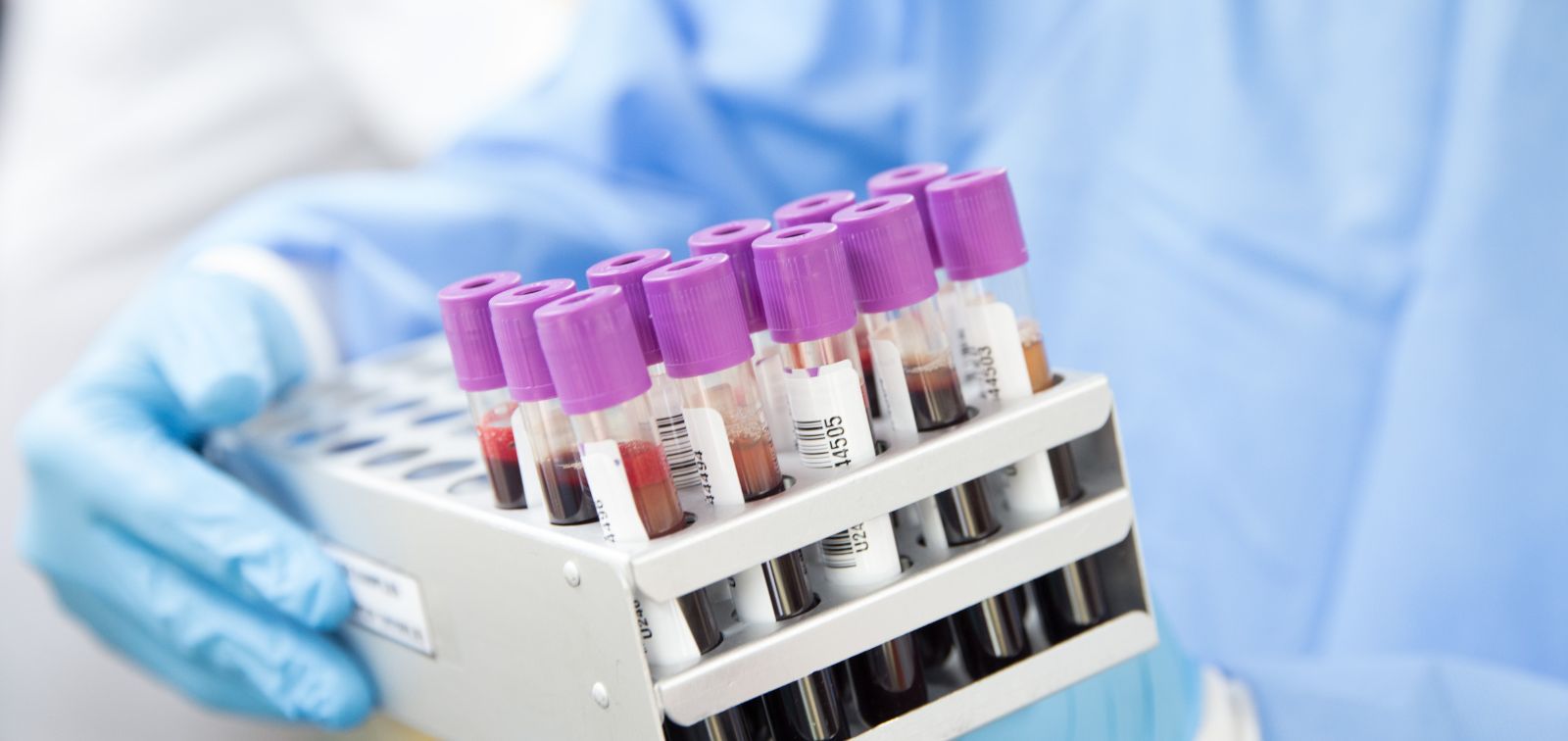GlycoTools
Probing Plasmodium Falciparum Glycosylation and Related Metabolic Pathways to Devise New Tools against Malaria

- Duración
- 01/06/2020 - 31/12/2023
- Coordinador
- Luis Izquierdo Lázaro
- Financiadores
- Ministerio de Ciencia e Innovación - Agencia Estatal De Investigación. Reference: PID2019-110810RB-I00 Call: Retos y Generación
Malaria is an infectious disease caused by parasites of the genus Plasmodium. The disease causes >200 million clinical cases and 600,000 deaths annually, and it is widely accepted that its elimination will not be possible with currently available treatments and prevention measures. Thus, there is an urgent need for the design of novel tools and interventions to fight and control malaria, especially if recent calls for elimination are to be successful. These tools will only be available by increasing our knowledge of the biology of the parasite and of the complex interactions that P. falciparum establishes with the human host and the mosquito vector.
This proposal will contribute to addressing some of the existing knowledge gaps in parasite biology by extending our understanding of the glycobiology of the malaria parasite and how it contributes to P. falciparum survival and infectivity.
Glycosylation represents one of the most common and heterogeneous post-translational modifications of proteins, and complex glycoconjugates are involved in almost every biological process. Because of this glycoconjugates play major roles in nearly every human disease. P. falciparum conserves and expresses an active and distinct glycosylation machinery that only in last years has begun to be unraveled. Thus, it was recently demonstrated that Plasmodium parasites express α-galactose-terminated glycans, not present in the human glycome, at their surface, and that anti-α-gal antibody responses in humans are protective against malaria. The nature and the exact structure of parasite α-galactose glycans remains uncharacterized, but our preliminary works clearly reveal the presence of these glycoconjugates in specific form of the asexual blood stages of the parasite.
We propose to fully describe them, paving the way for the potential development of novel glycan-based protein conjugate vaccines against malaria. Likewise, several recent works show that key parasite proteins and advanced targets of malaria vaccines, such as the circumsporozoite protein (CSP) and the thrombospondin-related anonymous protein (TRAP), are also modified by the parasite glycosylation machinery. We intend to analyze, for the first time, how these glycans affect antigen recognition by human antibodies, employing high quality serum samples derived from state-of-the-art malaria vaccine trials.
At the same time, we will assess the role that these glycans play in the trafficking and function of CSP and TRAP, to determine if they are dispensable or required for parasite survival.
Lastly, we will investigate important and active carbohydrate-related metabolic processes taking place in intraerythrocytic and other parasitic stages, amenable for therapeutic intervention to prevent or treat malaria. Particularly, we aim to deeply characterize P. falciparum glucosamine-phosphate Nacetyltransferase as a drug target. This enzyme belongs to gene family with a single and independent evolutive origin in the Apicomplexa phylum, more than 800 million years ago. Its significance for glycoconjugate metabolism in the malaria parasite, together with the unique sequence features of this gene family, highlights its importance as a potential selective drug target.
In summary, through this programme we will capitalize the knowledge and data gathered in preceding projects (Proyectos I+D+i, Agencia Estatal de Investigación) to conceive innovative ways to fight malaria.
Total Funding
193.600,00 EUR
Nuestro equipo
Coordinator
-
Luis Izquierdo Lázaro Associate Research Professor
ISGlobal Team
-
 Miriam Ramirez Técnico de Soporte Científico - Laboratorio
Miriam Ramirez Técnico de Soporte Científico - Laboratorio -
Jordi Chi Técnico de laboratorio
-
 Pia Alberione Investigadora predoctoral
Pia Alberione Investigadora predoctoral -
Àngel Fenollar Investigador predoctoral
-
Tais Romero Técnica de laboratorio
Otros proyectos
Ver proyectos pasadosMESA
La Alianza Científica para la Erradicación de la Malaria (MESA) tiene como objetivo avanzar en la ciencia de la erradicación de la malaria.
NHEPACHA
Nuevas Herramientas para el Diagnóstico y la Evaluación del Paciente con Enfermedad de Chagas
Estudio inmunológico de la vacuna RTS,S
Estudio de correlatos de protección frente a la malaria después de la vacunación con RTS,S/AS01E: Una evaluación inmunológica exhaustiva en el ensayo clínico de Fase III, doble ciego, aleatorizado, multicéntrico con un grupo control
Euroleish.net
Control of Leishmaniasis. From bench to bedside and community
GREPIMER
Grup de recerca en patología importada i malaties emergents i re-emergents
TESEO
Nuevos regímenes de quimioterapia y biomarcadores para la enfermedad de Chagas
ASINTMAL
Unravelling Disease Tolerance and Host Resistance in Afebrile 'P. falciparum' Infections: a Prospective Study in Mozambican Adults
ADAM
Administración masiva y focal de fármacos antimaláricos para avanzar hacia la eliminación de la malaria en Mozambique: acelerando la implementación de programas y políticas
MULTIPLY
MULTIple doses of IPTi Proposal: a Lifesaving high Yield intervention
Science4Pandemics
Citizens engagement digital platform for collective intelligence in pandemics
HIDDENVIVAX
Novel organ-on-a-chip technology to study extracellular vesicles-mediated cryptic infections in Plasmodium vivax malaria
Subclinical Infections in Children and Long Term Health Effects
Infection acquisition in early life and health outcomes in childhood - MARATO TV3
Herramienta innovadora de detección de enfermedades y vacunación a población inmigrante en riesgo en España
Project Code: PI21/00651
Impacto de las coinfecciones en el balance de respuestas de anticuerpos y linfocitos T helper a antígenos diana de inmunidad natural y vacunal frente a patógenos humanos prominentes
Project Code: PI20/00866
MENA Migrant Health
Transforming data collection and surveillance to drive migrant health research, care and policy
SexMal
Social affairs and sex in P. falciparum: implications for malaria elimination
EpiGen
Building Scalable Pathogen Genomic Epidemiology in Ethiopia
SMART
Identifying Severe Malaria with a new Aptamer-based Rapid diagnostic Test
MalTransc
Transcriptional regulation of adaptation and developmental decisions in malaria parasites: from epigenetic variation to directed transcriptional responses
GenMoz
P. falciparum genomic intelligence in Mozambique
BOHEMIA
Broad One Health Endectocide-based Malaria Intervention in Africa
RESPONSE
Mechanisms of the transcriptional responses to changes in the environment in the malaria parasite Plasmodium falciparum
VivaxEVTalk
Extracellular Vesicles as Intercellular Communicators and Biomarkers of Cryptic Erythrocytic Infections in Plasmodium vivax malaria
VaMonoS
Unravelling the heterogoneity and function of monocytes in vaccination and immunity to malaria
CLIMSOCTRYPBOL
Insight on climate and social participatory research for integral management of vectorborne zoonosis caused by Trypanosoma cruzi and Leishmania spp. in the Bolivian Gran Chaco.




